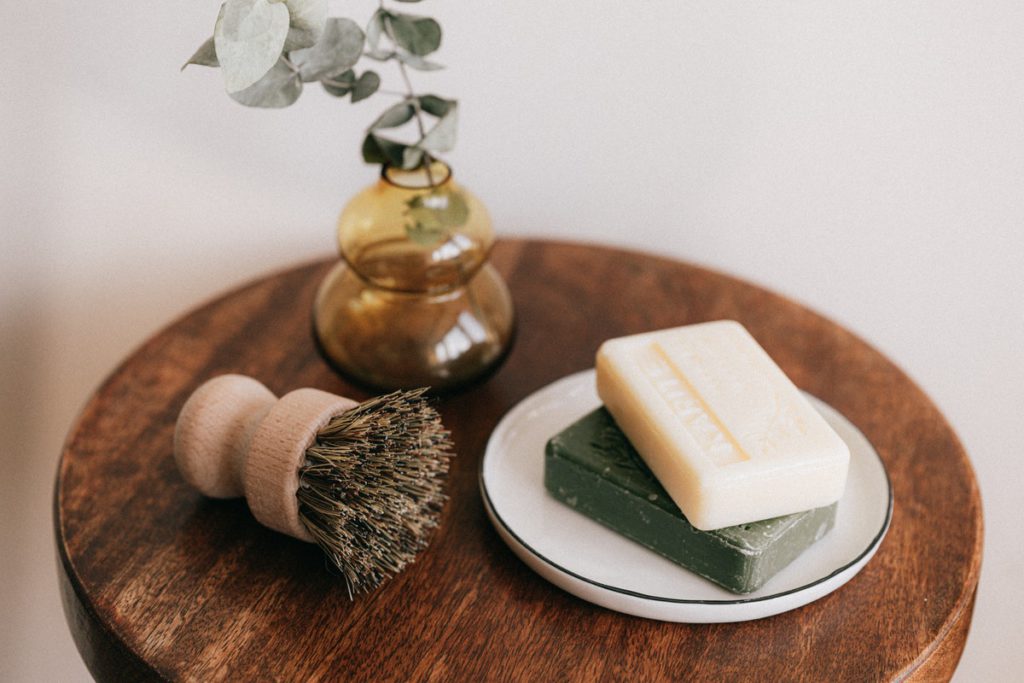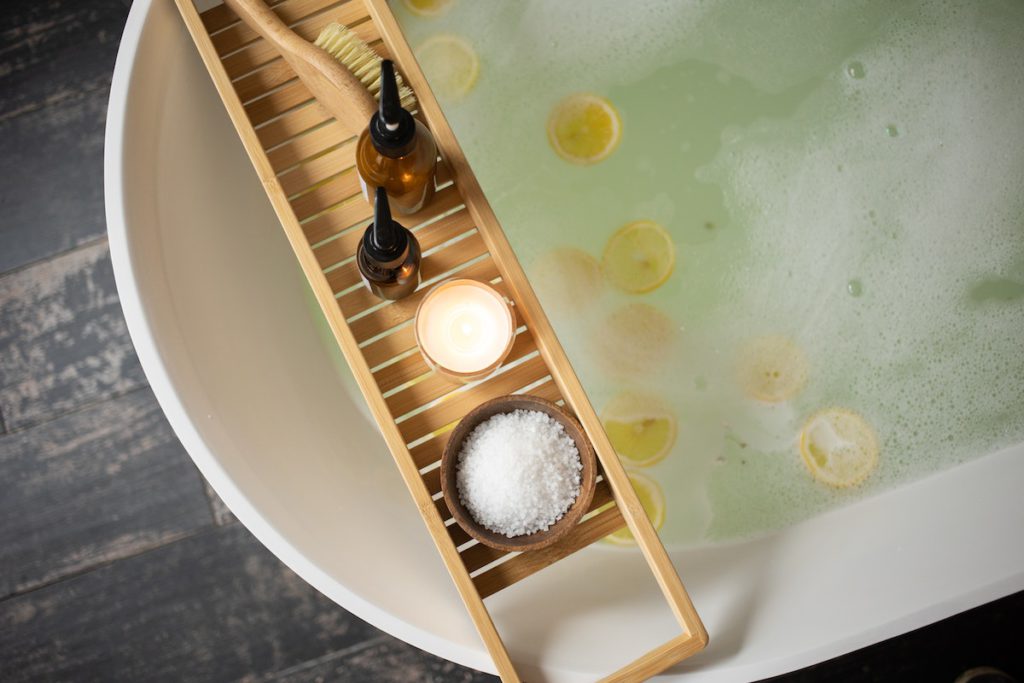
Dermatologists suggest some skin problems may occur due to improper bathing practices. Many dermatologists recommend that individuals modify their bathing routines in winter to safeguard against dry skin. Horticulturalists, arborists, recreational gardeners, and anyone spending significant amounts of time outside with various plants may be able to decrease their horticulturalist’s risk for skin breakouts and other injuries by taking showers immediately upon entering their home. People say that showering daily helps wake them up and keeps them looking and feeling clean, particularly after exercising, working out, or during warm, humid weather.
The effects of a daily shower may even have adverse effects on the skin. Keep your showers short and cool, because too much water, boiling water, can dry your skin. Always avoid super-hot water and harsh soaps if your skin is prone to dryness.
 The Australian made skincare, soaps and shampoos people use while taking showers to dry their skin and hair lead to cracked skin and split ends. While washing your hair daily is not necessarily the best thing for your skin or hair, maintaining a regular shampooing routine may help prevent seborrheic dermatitis. When you pass every day, it causes your hair to get dry and brittle.
The Australian made skincare, soaps and shampoos people use while taking showers to dry their skin and hair lead to cracked skin and split ends. While washing your hair daily is not necessarily the best thing for your skin or hair, maintaining a regular shampooing routine may help prevent seborrheic dermatitis. When you pass every day, it causes your hair to get dry and brittle.
Showers flush out bacteria and other irritating substances, which may trigger breakouts and other skin problems—washing and scrubbing strip your skin of its oils and healthy bacteria, leaving your skin feeling dry, irritated, and itchy. In addition, showering eliminates bacteria from your skin, rinsing away the bacteria that help your body defend against infections.
While the sweat does not smell, it may blend in with natural bacteria on the skin and begin causing the B.O. This nasty bacteria does not just affect your skin – if the germs you did not flush out get to your body through your eyes, mouth, or nose, they could also cause an illness. The infection may occur if your skin cannot keep out or fight off the harmful bacteria and fungus.
Dry, cracked skin allows germs to pass through, leading to infections and allergic reactions. Allergens can find their way to your skin, causing allergies, which can be a huge issue. People who have a skin condition or are sensitive If you have a skin condition, your skin biome may be more susceptible to irritation.
Uncontrolled stress can make the skin more sensitive and can cause breakouts of pimples and other skin problems. In addition, a lifetime of exposure to the sun causes wrinkles, age spots, and other skin problems and increases the risk of skin cancer.
One of the most important ways to care for your skin is by protecting it from the sun. How you wash is very important for the health of your skin, particularly after age 50, when skin oil production and the integrity of your skin barrier are reduced. Bathe every other day if you are worried about conserving water or skin conditions.
If you choose to bathe one day and skip the next, you will likely see the health benefits, including generally healthier skin and hair. Showering once or twice per week may generally be enough to hit those criteria, and people may want to use a hot washcloth to keep them feeling fresh.
Some people shower because, let us face it, sometimes we get smelly; others use their shower or bath time to unwind and decompress after a hectic day. Older adults might not need a daily shower to maintain the cleanliness required to protect their skin, keep infections away, and conform to common standards of cleanliness. That is, if something about your lifestyle requires daily cleansing, then it is acceptable to shower more frequently, says family and emergency medicine physician Dr Jeanette Nesheiwat, M.D. Not raining for several days may make you smell a little, but too much of a bath may be doing more harm than good, reports The Independent.
While many believe daily bathing is necessary for cleanness and hygiene, others argue that it strips your body of natural oils and dries your skin. Washing the skin often removes its natural oils and destroys the populations of bacteria that support the immune system. In addition, showering can break down the acid mantle on the skin, a natural protective barrier, leaving it susceptible to bacteria and viral invaders. Sandy Scotnicki, M.D., an associate professor of dermatology at the University of Toronto, told The Atlantic recently that washing your body from head to foot in soap and water could lead to problems such as eczema and other skin conditions.
In addition to making new skin problems appear, Houshmand says that failing to bathe also causes conditions like atopic dermatitis, more commonly known as eczema, to flare up. The slight stress from an early bath may make it easier for some babies to experience blood sugar crashes (hypoglycemia). Too-hot tap water can quickly produce severe burns that warrant hospital visits and surgery. Dry skin, allergic skin reactions, and even infections can result from improper bathing.
Showering after coming in contact with surfaces such as these can help maintain your health and hopefully prevent various infections. Always put on clean sandals, or disinfect the bath and body products used by anyone with fungus infections on their skin. Otherwise, you may pick up an infection. Wash the baby’s face and hair with soft washcloths, careful not to rub or pull at the skin. Even if you are genuinely exhausted, you should at least attempt a clean sweep of the skin and then have a standard shower the next day.
